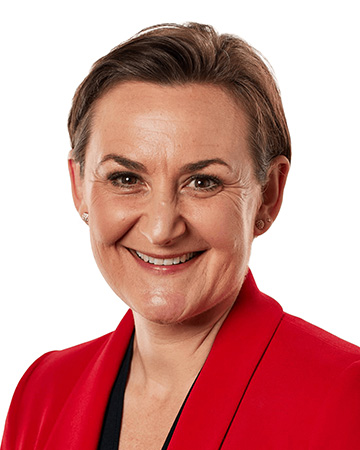ED reforms to include alternative care pathways and new targets
- WA Virtual ED trial bolstered with new funding for community-based care
- First phase of State Health Operations Centre brought forward to winter 2023
- Enhanced Key Performance Indictors (KPIs) and new public dashboard for hospitals to boost accountability and transparency
- $74.9 million of additional funding in 2023-24 State Budget part of McGowan Government's $452.7 million commitment to address pressures on our emergency departments
The McGowan Government will establish a State Health Operations Centre (SHOC) to improve monitoring and coordination of emergency care ahead of schedule, as part of its ongoing investment in reducing bed block and ambulance ramping.
More than $74.9 million of new and continuing initiatives to improve emergency access will be funded in the 2023-24 State Budget, on top of the almost $377.9 million committed to addressing pressures on our emergency departments since the 2021-22 Budget.
The establishment of the SHOC comes after last year's Budget included business case planning.
Under its funded strategy to tackle bed block and ambulance ramping, the McGowan Government will fund and deliver four major reforms under its strategy such as:
- Establishing a Western Australian Virtual Emergency Department with new community-based services;
- Implementing the first phase of a State Health Operations Centre;
- Introducing new dedicated teams in hospitals to address unnecessary discharge delays; and
- Reducing the number of 'long stay patients' awaiting aged care or NDIS support.
These reforms closely align with the solutions proposed at the AMA's Health and Hospitals Summit in November, which the Health Minister and senior WA Health officials attended.
The trial of virtual and community-based hospital services for residential aged care will be expanded to support stage one of the recently announced WA Virtual Emergency Department. This includes $3.4 million to extend the Community Health in a Virtual Environment pilot, and $3.9 million to expand Geriatric Residential Outreach and other older adult services.
These expansions will complement $2.5 million in additional funding for the Residential Care Line and an $8.2 million investment into a smart referrals outpatient system.
The first phase of the State Health Operations Centre will be rolled out, with an initial $7 million committed to delivering early measures like improving inter-hospital patient transport.
Funding of $8.2 million over two years will support dedicated teams in hospitals to eliminate barriers to timely care and optimise the patient experience through initiatives that are developed locally, tested, refined and scaled across the system.
Importantly, new and expanded Key Performance Indicators (KPIs) will be introduced at WA hospitals this year to improve monitoring capabilities.
Hospitals will be asked to report on a range of additional targets, on top of existing metrics, to boost accountability and transparency.
For patients presenting to emergency departments, the new targets are for hospitals to admit 80 per cent of patients within six hours and discharge 80 per cent of patients who do not need to be admitted to a ward within four hours.
These additional KPIs will complement existing targets, such as the ambulance Extended Transfer of Care hours - known colloquially as ambulance ramping, to enhance monitoring capabilities of emergency department performance.
For added transparency, a new public dashboard to report the targets is being developed and will be launched later this year. This will include ambulance ramping.
New tools will also be developed to monitor the entire patient journey, such as the time taken to discharge a patient into aged care once deemed medically fit for discharge.
Once implemented, these new initiatives will make WA a national leader in this space.
The targets have been designed by the Ministerial Taskforce on Ambulance Ramping, led by Health Minister Amber-Jade Sanderson, in consultation with stakeholders and hospital staff, and are based on targets recommended by the Australasian College of Emergency Medicine.
Comments attributed to Health Minister Amber-Jade Sanderson:
"There is no single solution that will improve access to emergency care, which is why we are looking at the patient journey as a whole - from start to finish - and making the reforms that matter.
"We are investing in major changes to avoid an 'all roads lead to ED' system while at the same time expanding our hospital bed capacity.
"The four priority reforms in our ambulance ramping strategy will enable us to better deliver the right care, in the right place, and at the right time for each patient.
"The McGowan Government is investing in WA's health system to expand hospital capacity, improve patient flow and address ambulance ramping, and the enhanced KPIs for hospitals will help to ensure our record investment is delivering for patients."
Minister's office - 6552 5900



